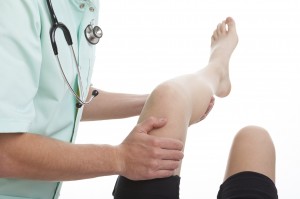Rheumatoid Arthritis Risk Factors Affecting Women
 Clinical studies on rheumatoid arthritis have shown that this autoimmune disease is nearly two and a half times more common among women than men. While there are risk factors that generally apply to both sexes, there are a number of risk factors which are specific to women. The latest RA research has highlighted the rheumatoid arthritis risk factors which every woman should become familiar with.
Clinical studies on rheumatoid arthritis have shown that this autoimmune disease is nearly two and a half times more common among women than men. While there are risk factors that generally apply to both sexes, there are a number of risk factors which are specific to women. The latest RA research has highlighted the rheumatoid arthritis risk factors which every woman should become familiar with.
What are these RA Risk Factors?
At this time, there are around 1.5 million people in the United States who are living with this chronic autoimmune disease, and female RA patients vastly outnumber male RA patients. The onset of rheumatoid arthritis can occur at any age, but most women are diagnosed with rheumatoid arthritis between the ages of 25 and 50.
Rheumatoid arthritis is often referred to as an inflammatory polyarthritis due to the fact that the symptoms of RA typically afflict more than one joint. In addition to causing severe joint pain, this disease is also systemic, which means that it can cause damage to the patient’s entire body. The inflammation that is caused by this autoimmune disease not only damages the joints, but also can be quite severe on the internal organs as well. If rheumatoid arthritis is not treated effectively, then it could lead to permanent deformity and limited joint mobility.
A research team from the Arthritis Research UK Epidemiology Center has conducted an extensive investigation of the various lifestyle factors and pre-existing medical conditions that could affect a person’s risk of developing rheumatoid arthritis. In order to obtain the most accurate findings, they studied 25,639 men and women (all between the ages of 40 and 79) and compared data taken from the 184 who were diagnosed with rheumatoid arthritis against those who did not.
RA Risk Factors that Affect Women
For women, these appear to be the most significant risk factors when it comes to this autoimmune disease. Please take careful notice of this list, and take any necessary steps to eliminate them if applicable:
- Smoking: This research has shown that women who smoke have a 50 percent higher chance of developing rheumatoid arthritis compared to women who don’t. The risk seems to be based on how often an individual smokes, and it has been linked to anyone who may be carrying the shared epitope (a genetic predisposition). If you have been diagnosed with RA, then smoking can even cause a flare-up of your symptoms and hamper the effectiveness of RA treatments.
- The Presence of Diabetes: It seems that women who have diabetes are significantly more likely to develop rheumatoid arthritis compared to those that do not. If you are a diabetic, then you can always manage your disease through proper diet, exercise, and weight control.
- Obesity: Women with a body mass index (BMI) of 30 or more are much more likely to be diagnosed with rheumatoid arthritis. This extra weight puts a lot more stress on the joints, so RA patients really should try to maintain a healthy weight.
- Children: Incredibly, this study suggested that women who had given birth to two or more children were twice as likely to develop rheumatoid arthritis than women who did not have children. (Rheumatoid arthritis can have significant affects on a pregnancy.)
- Breastfeeding: A study from 2008 had shown that breastfeeding children for a longer period of time (more than six months) was linked with a lower overall risk of developing rheumatoid arthritis.
Family Medical History and Genetics
There were two associated risk factors that were left out of this list and were not discussed during this particular rheumatoid arthritis clinical study; family medical history and genetics. As it is with most medical conditions and diseases, your risk increases if you have had a family member who has been afflicted by the particular condition.
If you do possess certain genes, like the human leukocyte antigen (HLA), then you may have a significant genetic risk of developing this chronic autoimmune disease, more so than people who don’t possess the HLA genes. On the other hand, the presence of these genes does not mean that you are guaranteed to be afflicted by RA.
Do any of these rheumatoid arthritis risk factors apply to you or a loved one? If you believe that you have been experiencing any symptoms like joint pain or stiffness (especially after waking up), then it may be in your best interest to schedule an appointment with your doctor.